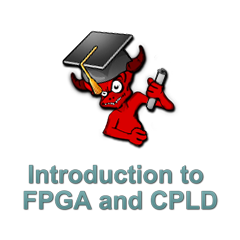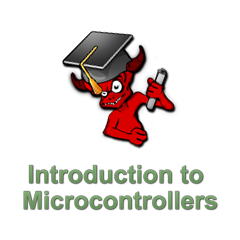Categories
- animatronics (12)
- apple (11)
- arduino (179)
- art (41)
- articles (121)
- artificial intelligence (11)
- automation (421)
- avr (205)
- bitcoin (3)
- breadboard (9)
- cameras (57)
- cars (26)
- cell phones (28)
- clothing mods (21)
- console mods (26)
- dangerous (94)
- desktop mods (24)
- embedded (5)
- flying things (54)
- fpga (22)
- gaming creations (108)
- interface (225)
- internet (17)
- laptop mods (6)
- lasers (22)
- linux (7)
- magnetic (3)
- medical (12)
- microcontrollers (51)
- misc projects (152)
- msp (12)
- music (124)
- pic (90)
- projects (23)
- pyroedu (76)
- raspberry pi (26)
- robots (312)
- security (36)
- sensors (307)
- software (200)
- solar (19)
- stamp (9)
- tools (149)
- tutorials (98)
- Uncategorized (45)
- usb (44)
- wireless (256)
Sponsors


Posted July 25, 2014 by Syd
We are excited to announce a new contest we will be hosting over the next several weeks!
Build your very own electronic device to demonstrate Persistence of Vision (POV) using an FPGA or CPLD. Visit the Contest Page for details on how to enter, prizes, and more. Also, visit the Pyro Propeller Clock POV Project to get an idea what POV is. If you’re unsure how to build one, don’t worry! PyroEDU’s 5th Course: FPGA and CPLD will soon cover how to build your own handheld POV device, just in time to build one before the contest ends on August 30th, 2014. Good luck!

Posted July 24, 2014 by Chris
This week we’re moving on to Lesson 5: Procedural Logic, a topic that moves simple combinatorial logic to add clocking! This lesson is part of our new PyroEDU course: An Introduction to CPLD and FPGA. Here’s an overview of the lesson:
"FPGA and CPLD devices offer a separate type of logic which happens in series. This is called procedural logic and it uses a clock source to drive the logic contained within the procedure."

Posted July 17, 2014 by Chris
The topic for this week’s lesson in FPGA and CPLD land is: Lesson 4: Combinatorial Logic. This lesson is part of our new PyroEDU course: An Introduction to CPLD and FPGA. Here’s an overview of the lesson:
"In the Introduction to Digital Electronics course, we explored AND, OR, NOT, NOR and other logic gates. Now we’ll harness the power of programmed logic to dynamically create and use these gates in a CPLD."

Posted July 10, 2014 by Syd
This week we’re moving on to Lesson 3: Input & Output in our new PyroEDU course: An Introduction to CPLD and FPGA. Here’s an overview of the lesson:
"All FPGA and CPLD devices have general purpose input and output pins, often called GPIO. Here we will take a look at how to build a CPLD image and hardware to accept push-button input in order to affect output LEDs."

Posted July 3, 2014 by Chris
This week we’re moving on to Lesson 2: Hardware Hello world in our new PyroEDU course: An Introduction to CPLD and FPGA. Here’s an overview of the lesson:
"Building a ‘hello world’ application signifies a time honored approach to learning how to program. In this lesson, we will explore the first steps necessary for building and loading images onto a CPLD."

Posted June 26, 2014 by Chris
Today we’re happy to announce that lesson 1 of our new course: An Introduction To FPGA And CPLD is live. Here’s an overview of the lesson:
"Want to learn about FPGA and CPLD? Please start here! This lesson explains the course content, what expectations you should have and what parts are needed for the course."

Posted June 23, 2014 by Chris
Thanks to continued support and feedback from all of YOU, we are excited to announce that the 5th course of PyroEDU: An Introduction To FPGA And CPLD will begin this week! Here’s a preview of the course overview:
“This course is meant to create a pathway into learning about FPGA and CPLD electronics, for people who are scared of the code, tools and general trickery that usually comes with it. A hands-on approach is taken in this course through a combination of lecture and experimentation to teach you about the different features of both the development tools and languages used in the world of FPGA. Additionally, visuals are used throughout lectures like step-by-step schematic building and line-by-line code explanations so that everything gets explained.”
This course comes right on the heels of An Introduction To Microcontrollers and as such, it will use knowledge from that course to further expand to the world of programmed logic and hardware. Also, thanks again to all of our kickstarter backers who originally got us started! Read more at the course page at PyroEDU

Posted May 15, 2014 by Chris
Can you believe it? We’ve reached the final lesson of our new PyroEDU course: An Introduction To Microcontrollers. In this lesson we will take a look at what is AVR vs Arduino. Here’s an overview of the lesson:
"The arduino platform uses the AVR ATMEGA328 microcontroller to provide an awesome introduction to using microcontrollers, but there actually exists a world underneath arduino: let’s take a look at it. "

Posted May 8, 2014 by Chris
In this week’s PyroEDU lesson in our new course: An Introduction To Microcontrollers, we will Build A Cyclops Eye using a microcontroller outputting PWM to some LEDs. Here’s an overview of the lesson:
"Another internal module in microcontrollers generates what is called a PWM output. In this lesson, we will explore using these PWM output modules to make a cyclops eye with fading LEDs."

Posted May 1, 2014 by Chris
In this week’s PyroEDU lesson in our new course: An Introduction To Microcontrollers, we will Build an LED Game using a microcontroller, push button, LEDs and a trimpot. Here’s an overview of the lesson:
"At this point, we have tons of knowledge about microcontrollers, let’s take a break and do something fun: design a game! This game will be a game of skill with push buttons and LEDs."






